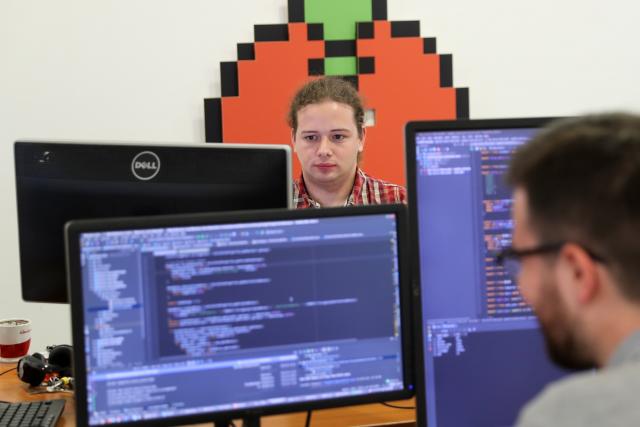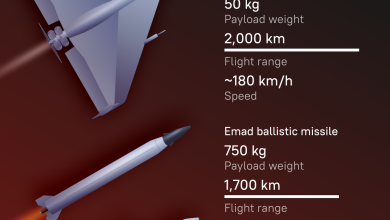Serbia turns to tech industry to fight economic stagnation

Serbia, a country that claims inventor Nikola Tesla as one of its most famous sons, is looking to technology to help lift itself out of decades of economic stagnation following the Balkan wars of the 1990s.
While a small player in global or even Western European terms, Serbia now generates 10 percent of its gross domestic product from information technology.
Technology exports are worth 1 billion euros ($1.2 billion) so far this year, up from around 900 million euros in 2017, putting it in the top three export sectors beside cars and agriculture, according to Finance Minister Sinisa Mali.
Serbian companies are producing software for industries ranging from agriculture to medicine as well as Uber-type trucking and cloud applications, online games and testing. They are also running call centers and customer helplines.
But it’s a competitive market with many countries scrapping for a share of the cash being invested by foreign tech companies.
Under Prime Minister Ana Brnabic, a 42-year-old with a background in promoting entrepreneurship, Serbia is stepping up support for the start-up scene and wooing multinationals to set up operations in Serbia.
As part of its strategy, Serbia is attracting foreign investors with its low-wage status, as well as subsidies of up to 10,000 euros per employee.
“Information and high-end technologies and the digital agenda are the future of our economy,” Serbian President Aleksandar Vucic told Reuters.
“Serbia’s IT sector is the product of our own intelligence…we have to continue to train as many people as possible to work in this sector,” he added.
Major companies including Microsoft, IBM and Intel have either established development centers in Serbia or have outsourced work to local firms, offering wages that are more than three times higher than the country’s monthly average take-home pay of 420 euros, but still lower than that in European Union countries.
Google is supporting Serbia’s growing startup scene by teaming up its Google Developers Launchpad, designed to help developer communities and startups grow, with Belgrade-based tech community organization Startit.
But, in an e-mailed note, PricewaterhouseCoopers warned the country must tackle the departure of its brightest young people, spur innovation and improve its regulatory framework, digital skills and outdated education system.
Hundreds of thousands of educated young people have left Serbia since 2000 after the ouster of strongman Slobodan Milosevic. The exodus continues at an average annual rate of around 30,000 people in recent years, with 60,000 leaving the country in 2015 alone, mainly to the EU.
Although some tech companies in Serbia employ people in low-skilled outsourced work in call centers or online store support, others are involved in more sophisticated areas.
Start-up Nordeus is a self-funded Belgrade-based developer of the “Top Eleven Football Manager” game that has topped app store charts, while FishingBooker, has been described as the Airbnb of fishing trip charters.
Serbia’s Strawberry Energy is a crowd-funded startup that produces solar-powered smart benches providing Wi-Fi access, mobile phone charging facilities and information services in public venues.

According to its website www.senergy.rs, its products are already present in 17 countries and its clients include London’s Canary Wharf, the United Nations Development Programme, Orange and Ford.
Serbia’s economy is expected to grow 4 percent this year, according to the central bank, up from 2 percent in 2017. Net exports of all services from the European Union candidate country grew at an annual rate of 23.2 percent in the first half of 2018, driven by information and communication technology and business services.
“The domestic tech industry … can not only independently, but indirectly through links with the industry make a significant contribution to growth,” said Sasa Djogovic, an economist with Belgrade’s Institute for Market Research.
There were over 2,000 firms in Serbia’s tech sector in 2017, according to an analysis published this year by the government’s Commission for Protection of Competition, up from 700 in 2006, with revenues doubling to 1.5 billion euros.
Although PwC expects Serbia’s tech sector to continue to grow by more than 20 percent a year, expansion is being hampered by a lack of skilled people.
Universities are churning out engineers but it is estimated that the country needs at least 15,000 mo




